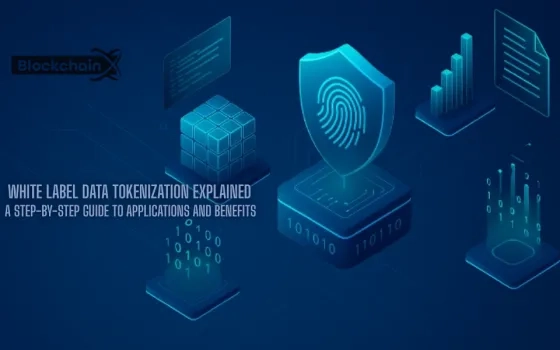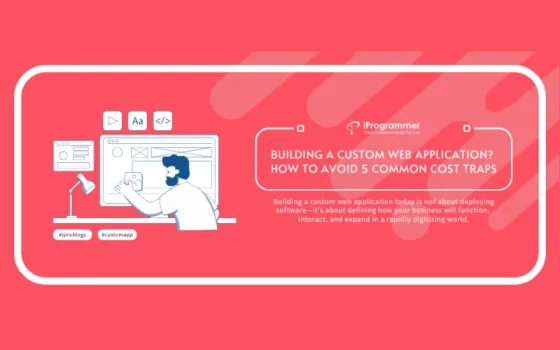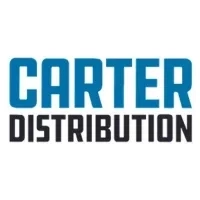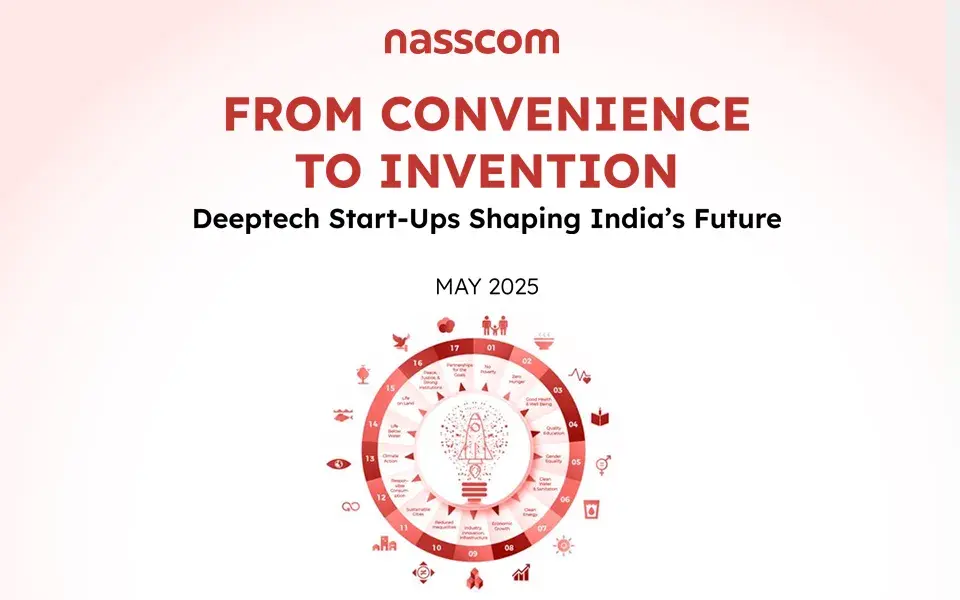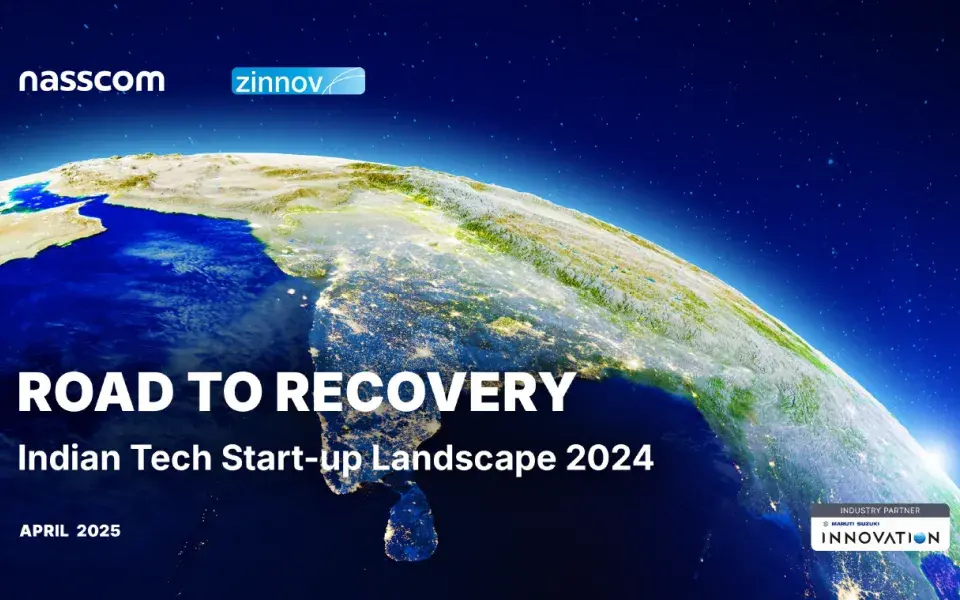In today's constantly evolving times, when we take a step back and reflect, it does feel amazing how far we have come in the journey of life and looking back, there is a bag full of learnings and memories with a different and varied number of individuals. These learnings help us achieve our responsibilities, directly or indirectly affecting the business. While there is a tremendous amount of study involved in discovering and explaining the technical aspects of a business domain, what often gets ignored is the psychological quotient of people involved in the overall journey of enterprise sustainment and growth.
Who Is a Stakeholder?
Let's take the example of “Kabir”, who owns a grocery store and encounters numerous people on whom his business depends a.k.a his stakeholders. Following is the list of direct and indirect stakeholders Kabir interacts with for running his grocery store:

What Is Stakeholder Management?
To understand what stakeholder management actually is, let us understand what activities Kabir does for managing his stakeholders:
- He makes sure that vendor invoices are paid in time.
- He files those invoices properly for the accountant to do his work at the end of every month.
- He makes sure that he has a great relationship with the vendors that give him fresh produce every day - this ensures good quality products for his customers.
- He makes sure that his customers' concerns and complaints are addressed properly so that they stay loyal to him.
All the above practices can be seen as actions taken to keep stakeholders happy and satisfied.

Why Is Stakeholder Management Important?
Stakeholder management is important because of the following vital reasons:
- It helps gain expertise on processes, industry insights, and historical knowledge of how these products sell.
- Discussing situations with different stakeholders will help reduce risks as during such discussions issues and concerns can be brought up and discussed.
- Maintaining healthy communication with the stakeholders, all the involved parties know the expectations, risks, and solutions to mitigate the risks.
Carrying on with more examples from Kabir’s day-to-day life we will try to understand the psychology behind stakeholder behaviour and how to steer through it while achieving project goals.
The Psychology of Managing the Stakeholders and why is it important?
So what drives stakeholders to continue associating themselves and show interest in your project or product, in this complex and competitive project management era? You can find a treasure trove of articles and discussions on the technical and mechanical perspectives of stakeholder management.
What a good product manager or a business administrator or anyone who is involved in stakeholder management should know is the third and hidden aspect that is overlooked by a lot of organizations, leading to eventual damage, i.e the psychology of a stakeholder.
Before you begin, make sure you take cognizance of the fact that analyzing the stakeholder's psychological attributes is directly dependent on the quality of information (accuracy and precision) you collect, the relevancy it brings to the table, and finally, whether it’s actionable or not.
Let’s consider a possible scenario in Kabir’s life and understand these physiological facts better.
Scenario: Kabir’s shop is closed for ten days since he has to attend his brother’s wedding. It is a big day for Kabir as he has no other siblings. He is excited about his brother’s wedding and is engrossed in ensuring the wedding is a grand success. However, every good thing comes with a cost. As he will be unavailable for ten days, his stakeholders do not seem very happy and okay about it. Let’s find out how Kabir responds to stakeholders’ different mindsets and approaches.
The False Consensus Effect

We, as humans, often overestimate (or have a cognitive bias on) how many people share our beliefs, choices, and behaviour and assume how they’d judge something in a given context based on these perceptions. Psychology defines it at an individual level, but when this is proliferated to a group of individuals, say the team of your project, you can save yourself from the drastic outcomes which can be fatal or a slow poison to your project while discussing the matters involving, affecting and understanding stakeholders.
Project managers tend to believe what they or what their internal team discusses or decides upon is right (based on their experience) and the knowledge they have is known to everyone. This may or may not involve internal stakeholders.
For many projects, external stakeholders constitute a more diverse, large, and complex community and their actions may change if they feel they weren’t involved in decision-making or if something was changed without a proper consensus. You have to make sure every stakeholder is heard before making a decision that will change the direction of your organization or a project.
The Promoters and The Dissenters

As your project grows, the number of stakeholders, from your customers to investors and suppliers will grow exponentially or at least parallelly.
If you’re not facing any problems or challenges or having no cross-questioning from a stakeholder or a group of them on everything your project is doing in its development phase, you’re either going in the wrong direction or your stakeholder(s) are no longer interested in your project.
Constructive criticism is key to quality for the corporate world in the 21st century. Sometimes you face challenges when you’re doing something right. For instance, you have to find out the toadies in your stakeholder meetings before they drop out and find ways to keep them interested. The opposite is also true. Some stakeholders will try to disapprove of your every plan for progress. It’s important that you’re not being blocked when you have majority support in some decision and the data you have collected to make that decision is precise.
Dealing with Stakeholders' Behavioral Inconsistency

Cognitive discordance is often a consequence of mental distress caused by the desync between the actions and beliefs of an individual. There may be unreasonable, sometimes irrational reasons, or inconsistencies with the stakeholders' thoughts, what they agree on, and what they finally do. First off, you must accept that anyone is not always rational or consistent, or predictable. Secondly, there is always a hidden reason when things become inconsistent. Your role as a project manager or a business analyst is to find that reason.
Some stakeholders might not understand the technicalities behind what’s changing in your project, so it’s always better to set a context on how a step in your plan will affect the overall objective. For technical projects, it’s better to set training sessions for stakeholders. This will help them in understanding things and developments your projects will bring while also giving your team a different perspective from fundamental levels.
Multi-Dimensional Benefits Lead To Underlying Motivation

A stakeholder has an interest in any decision or activity of a project or an entire organization. The important thing is to note that stakeholders are involved with you and giving you their time, space, and resources because they expect something in return. Remember that shared goals lead to a more collaborative environment.
Just like humans, every stakeholder has specific needs and wants. Whether they are individual stakeholders, a group of stakeholders, or an organization, satisfying their needs is of utmost importance to them. Projects serve a potential opportunity to meet their needs and wants and hence become a key source of inspiration and motivation for them.
Project Managers or Business Analysts must analyze those needs and wants and incorporate their project goals into that requirement. Doing so will ensure stakeholders are aligned with the project's prospect and are less prone to oppose it while we, as PMs or BAs, are able to deliver a project that stakeholders can derive value from.
The Fears And The What-Ifs

No plan is a foolproof plan. The same goes for projects. Risks and failures are results of positive developments. As a project manager or a business analyst, you have to address and conquer challenges faced by both you and your stakeholders. For example, you might be stressed about whether you’d be able to influence a stakeholder or a higher authority or not.
Irrespective of whether you are a Business Analyst or a Product Owner, your appearance and the way you talk, and your command over what you’re saying does create an impact on levels you can’t imagine. Your confidence in your own project impacts the ones you’re talking to or making requests to.
A stakeholder might be apprehensive about experiencing a net loss in the future from your project. You have to ensure that, first, you yourself aren’t an obstacle in a stakeholder buy-in and second, stakeholders must prosper with positive expectations with an intense degree of certainty towards your project. Remember this down the line, your project is a business to your stakeholders in one way or another.
To eliminate the stakeholders' fear of net loss, do make them understand what the future beholds. Remember that it’s a business for your stakeholders and they are seeking profits. “What ifs” can be removed by critical thinking and predictability of the consequences your plan can have.
Is There an All-in-One Secret to Win Stakeholder's Trust?
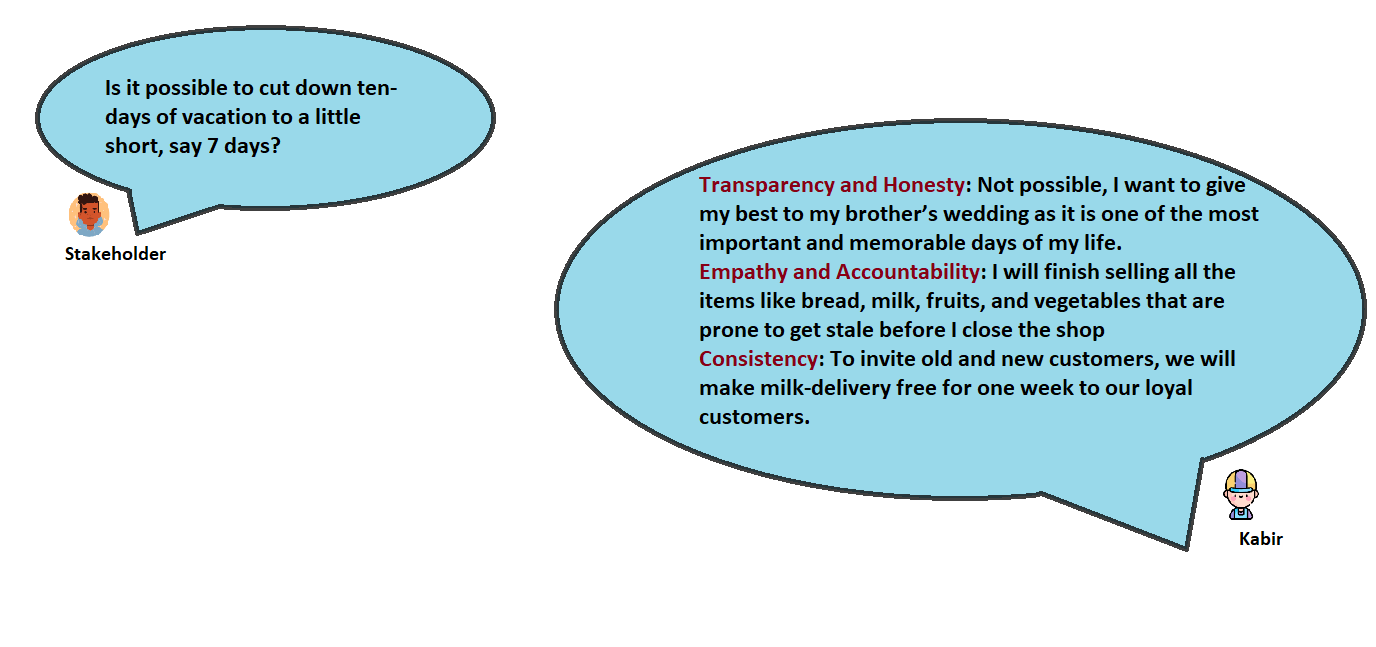
Many will say there is no such thing. But there is an all-in-one secret. Let’s TEACH (Transparency, Empathy, Accountability, Consistency, and Honesty). As a project manager, ensure that your project’s vital details are known to your stakeholders and they are being updated with changes via mail or meetings (transparency). Hiding (intentionally or unintentionally) something now will only lead to distrust and more pitfalls when it’s exposed. This is followed by empathizing with your stakeholders.
As a Business Analyst, your role is to trade shoes with your stakeholders and think from their perspective and understand whether they are really being benefited from your project. You must provide answers to everything that involves stakeholders (accountability) - from why a deadline wasn’t met to why something that was asked by stakeholders hasn't been taken care of.
The next is being consistent. Going back to cognitive discordance, humans strive for internal consistency. So if you make a commitment, make sure it’s followed with actions.
If you put a deadline, make sure it’s followed. Last but not the least, be honest. Explaining the real reasons behind a failure or why something happened the way it did, however lame these are, is better than losing the trust of people who can make or break your project.
All in all, handling a project or analyzing the business perspectives of it is a bit tedious and a complex task, especially for large organizations. Experts often suggest having a separate team for Stakeholders' responsibilities that will take care of in-and-out (mechanical, technical, and psychological aspects) of the project communication while being crisp, clear, honest, and transparent with the team and business owners. Involving people from different teams like marketing managers, business analysts, and project managers once a week or two who can make sure stakeholders are happy and satisfied is also a key to successful stakeholder management. In the end, we all have a sensitive soul, and ignoring and locking those emotional and psychological quotients may not only make things worse but also affect the overall aura and vibe of a project lifecycle.
“Everything can be taken from a man but one thing: the last of human freedoms - to choose one’s attitude in any given set of circumstances, to choose one’s own way." - Viktor Frankl
About The Authors:
Shraddha Dubey, Product Studio, Globant India
A Product Analyst with 7+ years of experience in Digital Marketing, Content Writing and Management, Instructional Designing, and Business Analysis. Catered experience to various industry domains including Retail Software, eLearning Institutes, Digital Marketing Institutes, IT Services, Educational Institutes, and eLearning Portals.
Aman Khisti, Product Studio, Globant India
A Business Analyst with two years of experience in media and financial operations, preceded by a rich decade-long experience in content and media programming. He is an avid agile practitioner and a problem solver at heart.








